★★★
“Fury woad.”
 The latest take on one of Britain’s greatest historical heroines has come in for a fair bit of critical flak. But I really did not think it was all that bad. Sure, it plays fast and loose with historical accuracy (Christianity wasn’t a thing in Britain at the time). However, we’re dealing with someone about whom there is very little reliable record. Why not throw in chunks of the Arthurian mythos, if it might make for a more interesting end product? The usual basics are there. Queen of the Iceni Boudica (Kurylenko) loses her husband (Standen), and subsequently falls foul of the occupying Roman Empire. She raises an army, leads a rebellion, kicks Roman butt for a while, but eventually goes down, fighting. That’s the Cliff Notes version.
The latest take on one of Britain’s greatest historical heroines has come in for a fair bit of critical flak. But I really did not think it was all that bad. Sure, it plays fast and loose with historical accuracy (Christianity wasn’t a thing in Britain at the time). However, we’re dealing with someone about whom there is very little reliable record. Why not throw in chunks of the Arthurian mythos, if it might make for a more interesting end product? The usual basics are there. Queen of the Iceni Boudica (Kurylenko) loses her husband (Standen), and subsequently falls foul of the occupying Roman Empire. She raises an army, leads a rebellion, kicks Roman butt for a while, but eventually goes down, fighting. That’s the Cliff Notes version.
The variations are in the details, and the versions previously reviewed each take a different approach. For example, Warrior Queen (2003) leaned into the drama. This goes the other way, coming to life most in the battle sequences. It should be no surprise: Johnson is a former stuntman, who has turned to directing action films. He’s best known for excellent Scott Adkins vehicle Avengement, but here we previously reviewed his war film, Hell Hath No Fury. There isn’t the budget here for the necessary scale – the Iceni army reportedly numbered well into six figures, but when Boudica is giving her inspirational speech, it’s more like a soccer mom offering half-time motivation. Yet it makes up for this in gory intensity: this is certainly the most blood-drenched version of the story ever told.
It does take its time getting there. Initially, Boudica is not a warrior queen at all. It’s only after she gets a sword handed down from previous generations that she begins to head in that direction. She encounters a female fighter (Martin), who regards Boudica as the fulfillment of prophecy. It’s when the Roman’s take over, flogging and branding her, then doing worse to her daughters (an angle which is handled weirdly, yet not ineffectively), that Kurylenko becomes the bad-ass Brit bitch we expected from the likes of Sentinelle. She paints up her face and takes the battle to the enemy, in a way which is up-close and personal.
At least for the first few battles, the Romans won’t know what hit them, and this absolutely doesn’t soft-pedal the brutality of hand-to-hand combat. It’s a shame there’s some stuff around the periphery that doesn’t work so well, such as a mercenary called Wulfgar (Franzén), who speaks modern-sounding French – was that even a thing in 61 AD? – and appears to have the hots for Boudica. There’s also the way her sword seems almost magical, which does perhaps take away from her intrinsically heroic nature, and doesn’t add much. I think if you took the best elements of both this and Warrior Queen, you might have something close to definitive. This can provide Kurylenko and a solid eye on the action. That’s still good enough for me.
Dir: Jesse V. Johnson
Star: Olga Kurylenko, Clive Standen, Peter Franzén, Lucy Martin





 Zombies and jail aren’t quite as new an idea as you might think. The Walking Dead had a major arc which took place at a prison, the facility’s fences now more useful for keeping things out than in. And back in 2005, The Asylum released the (surprisingly decent)
Zombies and jail aren’t quite as new an idea as you might think. The Walking Dead had a major arc which took place at a prison, the facility’s fences now more useful for keeping things out than in. And back in 2005, The Asylum released the (surprisingly decent) 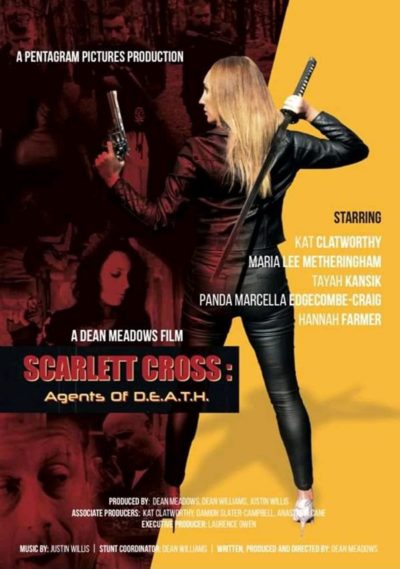 To be honest, I enjoyed this a good bit more than the rating above would indicate – probably another star or so. But I have a particular tolerance for cinema with rough edges, which I know not everyone will share. This is such an entity. I can’t really recommend it, since most people won’t be able to get past the micro-budget anesthetics, which the film rarely bothers even to try and hide. But I could appreciate the obvious passion that went into this. Put it this way, if I had twenty quid with which to make a movie, it could end up looking something like this. Probably not with such a kick-ass poster though.
To be honest, I enjoyed this a good bit more than the rating above would indicate – probably another star or so. But I have a particular tolerance for cinema with rough edges, which I know not everyone will share. This is such an entity. I can’t really recommend it, since most people won’t be able to get past the micro-budget anesthetics, which the film rarely bothers even to try and hide. But I could appreciate the obvious passion that went into this. Put it this way, if I had twenty quid with which to make a movie, it could end up looking something like this. Probably not with such a kick-ass poster though. After a year which has been filled with disappointments and films which have failed to generate much reaction beyond a mild “Meh,” it’s nice to see one which certainly surpasses expectations. Indeed, with about two months left to go in 2023, this would certainly be a finalist for GWG Film of the Year, were there to be such an award, and potentially could walk away with that hypothetical trophy. It’s the kind of movie which, even when you know exactly what’s about to happen, still delivers in a way that can generate an undeniable reaction. Considering my expectations going in were not much more than the made-for-TV level – this being a BET channel exclusive – it surpassed those greatly.
After a year which has been filled with disappointments and films which have failed to generate much reaction beyond a mild “Meh,” it’s nice to see one which certainly surpasses expectations. Indeed, with about two months left to go in 2023, this would certainly be a finalist for GWG Film of the Year, were there to be such an award, and potentially could walk away with that hypothetical trophy. It’s the kind of movie which, even when you know exactly what’s about to happen, still delivers in a way that can generate an undeniable reaction. Considering my expectations going in were not much more than the made-for-TV level – this being a BET channel exclusive – it surpassed those greatly.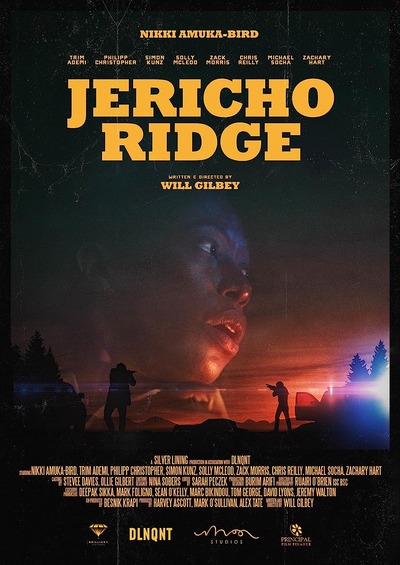 The heroine is
The heroine is 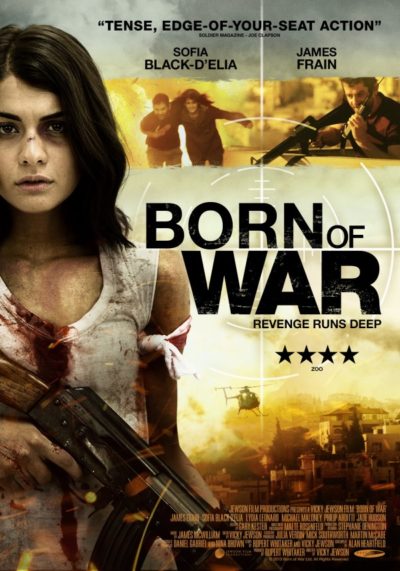 While technically solid, and occasionally looking quite good, this may be the laziest scripting I have seen in a movie for a long time. I feel I may have lost actual IQ points through the process of watching it, such is the degree of stupidity which this provides. The heroine is Mina (Black-D’Elia), a college student whose life is upended when she and her little sister narrowly escape a home invasion by Arab terrorists, in which both her parents are killed. She’s rescued by intelligence agent Olivia (Leonard), who tells her she’s the only heir of an Afghani warlord, Khalid (Arditti). Her mother betrayed him, and had to change her identity: he finally caught up with the family, and wants his daughter back.
While technically solid, and occasionally looking quite good, this may be the laziest scripting I have seen in a movie for a long time. I feel I may have lost actual IQ points through the process of watching it, such is the degree of stupidity which this provides. The heroine is Mina (Black-D’Elia), a college student whose life is upended when she and her little sister narrowly escape a home invasion by Arab terrorists, in which both her parents are killed. She’s rescued by intelligence agent Olivia (Leonard), who tells her she’s the only heir of an Afghani warlord, Khalid (Arditti). Her mother betrayed him, and had to change her identity: he finally caught up with the family, and wants his daughter back.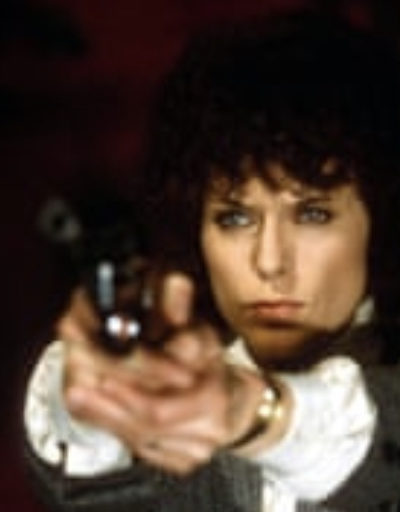 To be honest, it’s more character- than action-driven overall, yet that’s its strength, since it does a great job of creating people who feel “real”. Nobody here is perfect: everyone has flaws, and struggles to cope with life’s ups and downs. Maggie is the focus, having to operate in an era when casual disregard for a woman’s talents was the norm. Not least by her Scottish colleague, Bob Croft (Gwaspari), though he eventually came to appreciate her many talents, such as Forbes’s fierce devotion to justice. Fortunately, her boss, Detective Chief Inspector Bill Russell (Marlowe) always had her back, even if his approach means cutting her no slack either. But every episode seemed to have one or more great performance, taking advantage of the vast pool of top-tier British character actors.
To be honest, it’s more character- than action-driven overall, yet that’s its strength, since it does a great job of creating people who feel “real”. Nobody here is perfect: everyone has flaws, and struggles to cope with life’s ups and downs. Maggie is the focus, having to operate in an era when casual disregard for a woman’s talents was the norm. Not least by her Scottish colleague, Bob Croft (Gwaspari), though he eventually came to appreciate her many talents, such as Forbes’s fierce devotion to justice. Fortunately, her boss, Detective Chief Inspector Bill Russell (Marlowe) always had her back, even if his approach means cutting her no slack either. But every episode seemed to have one or more great performance, taking advantage of the vast pool of top-tier British character actors.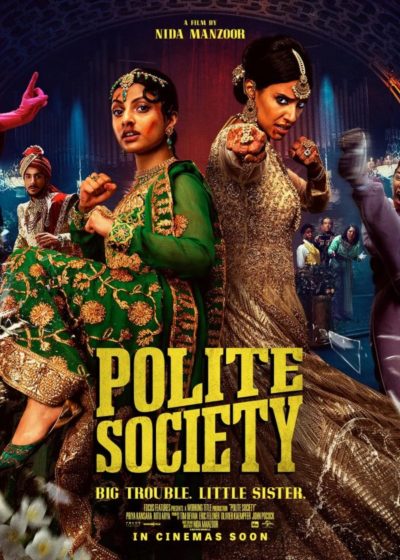 Sitting somewhere between
Sitting somewhere between 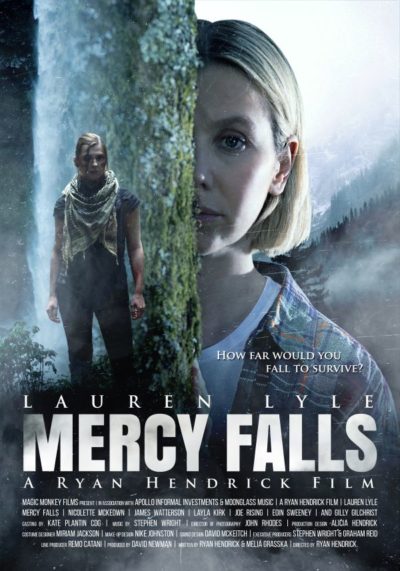 Even though I haven’t lived there since the eighties, I remain a sucker for a Scottish film. This delivers, with no shortage of rugged mountain landscapes, beautiful lochs, a ceilidh band and trees. So. Many. Trees. The foliage is understandable, because most of it takes places in the woods, where Rhona (Lyle) and her friends are looking for a cabin, deep in the wilds, which belonged to her late father. To help find it, they enlist the help of local Carla (McKeown), whom they meet down the pub when they have a pre-trip planning get-together. She initially seems fun to be with. But once they’re away from civilization, a shocking incident proves she… has issues, shall we say. And might not be the only one in the party.
Even though I haven’t lived there since the eighties, I remain a sucker for a Scottish film. This delivers, with no shortage of rugged mountain landscapes, beautiful lochs, a ceilidh band and trees. So. Many. Trees. The foliage is understandable, because most of it takes places in the woods, where Rhona (Lyle) and her friends are looking for a cabin, deep in the wilds, which belonged to her late father. To help find it, they enlist the help of local Carla (McKeown), whom they meet down the pub when they have a pre-trip planning get-together. She initially seems fun to be with. But once they’re away from civilization, a shocking incident proves she… has issues, shall we say. And might not be the only one in the party.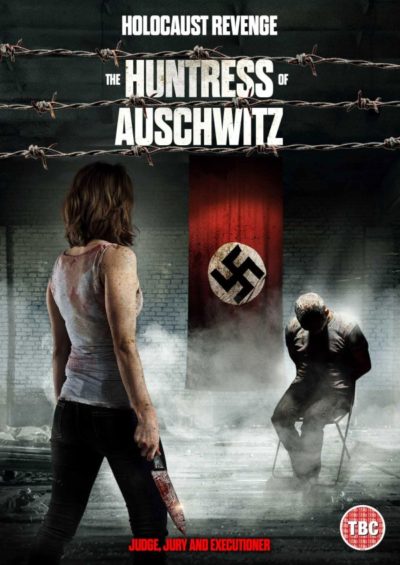 I came into this somewhat braced, given its 3.0 IMDb rating, and reviews which tended to be scathing e.g. proclaiming “This May Be The WORST Movie I’ve Ever Seen!” While it’s clearly not
I came into this somewhat braced, given its 3.0 IMDb rating, and reviews which tended to be scathing e.g. proclaiming “This May Be The WORST Movie I’ve Ever Seen!” While it’s clearly not 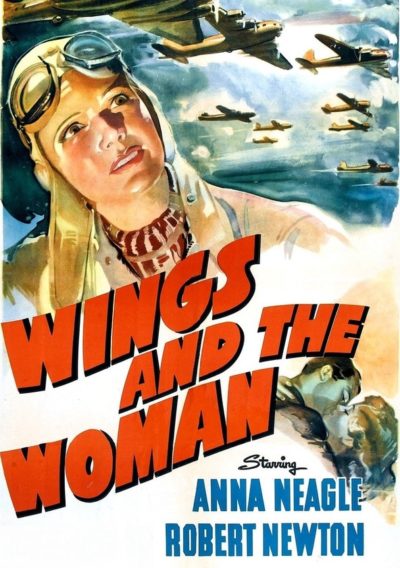 This bio-pic of aviator Amy Johnson appeared in British cinemas a scant eighteen months after she disappeared over the River Thames. That put its release squarely in the middle of World War II, and explains its nature which, in the later stages, could certainly be called propaganda. There’s not many other ways to explain pointed lines like “Our great sailors won the freedom of the seas. And it’s up to us to win the freedom of the skies. This is first said during a speech given by Johnson in Australia, then repeated at the end, over a rousing montage of military marching and flying. I almost expected it to end with, “Do you want to know more?”
This bio-pic of aviator Amy Johnson appeared in British cinemas a scant eighteen months after she disappeared over the River Thames. That put its release squarely in the middle of World War II, and explains its nature which, in the later stages, could certainly be called propaganda. There’s not many other ways to explain pointed lines like “Our great sailors won the freedom of the seas. And it’s up to us to win the freedom of the skies. This is first said during a speech given by Johnson in Australia, then repeated at the end, over a rousing montage of military marching and flying. I almost expected it to end with, “Do you want to know more?”